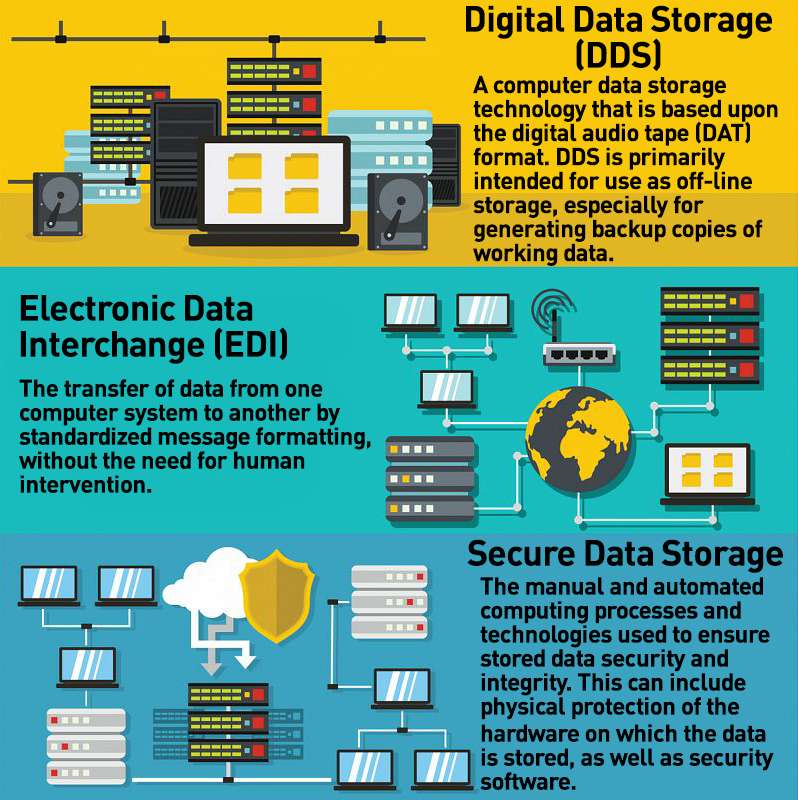Understanding the Duty of Data Destruction in Fortifying Cyber Security Defenses
Understanding the Duty of Data Destruction in Fortifying Cyber Security Defenses
Blog Article
The Necessary Nature of Data Destruction in Upholding Computer Safety Services and Protecting Against Unauthorized Gain Access To
In an age where data violations and identification theft are increasingly prevalent, the significance of efficient information devastation can not be overstated. Organizations needs to acknowledge that the failing to correctly deal with delicate info poses not only legal and financial risks yet additionally a potential disintegration of client depend on. Different approaches, from information wiping to physical destruction, act as important safeguards against unapproved gain access to. Nevertheless, comprehending the implications of data destruction practices and conformity with laws elevates essential concerns regarding the adequacy of existing techniques and their long-lasting stability despite developing threats.
Value of Information Damage
In a significantly digital globe, the value of information damage can not be overstated. As organizations generate large quantities of delicate details, the prospective repercussions of stopping working to appropriately dispose and handle of that information become significantly extreme. Data breaches, identity theft, and business reconnaissance position substantial dangers, emphasizing the necessity of effective data damage methods.

Additionally, as technology advances, so too do the techniques by which harmful stars seek to make use of delicate information. Organizations has to continue to be proactive and vigilant in their information damage methods to secure versus these developing threats. By focusing on data devastation, companies not just protect their possessions but also foster trust fund amongst stakeholders and clients, showing a commitment to responsible information monitoring and safety and security methods.
Approaches of Effective Information Devastation
To ensure the irreversible and complete destruction of sensitive information, organizations can use a selection of reliable approaches tailored to their specific demands. One of one of the most usual approaches is information cleaning, which involves utilizing specialized software program to overwrite existing data multiple times, making recovery virtually impossible. This is especially beneficial for solid-state drives and difficult drives, where traditional deletion methods are insufficient.
One more effective approach is degaussing, which makes use of strong electromagnetic fields to disrupt the magnetic domains on storage media, rendering the information irretrievable. This technique is particularly suited for magnetic storage space tools, such as tape drives and hard drives.
Physical devastation is additionally a feasible option, entailing the shredding, squashing, or incineration of storage devices. This approach warranties that information can not be recovered, making it excellent for companies dealing with highly sensitive details.

Compliance With Information Protection Rules
Organizations have to not just concentrate on reliable data devastation methods yet additionally guarantee conformity with data protection policies that govern exactly how sensitive details is handled and gotten rid of. Abiding by these laws is necessary for preserving and guarding individual data client trust. Regulations such as the General Data Defense Policy (GDPR) in the European Union and the Medical Insurance Transportability and Liability Act (HIPAA) in the United States impose rigorous guidelines on information management, which consist of needs for the safe disposal of delicate details.
To achieve compliance, organizations need to execute extensive data destruction policies that align with these lawful frameworks. This consists of recognizing information that needs devastation, developing methods for safe methodsâEUR" such as shredding physical media or utilizing software application that meets sector criteria for data wipingâEUR" and maintaining thorough documents of damage activities. Normal audits should be performed to guarantee adherence to these policies and to identify any kind of prospective locations for improvement.
Failing to abide with information defense policies can cause considerable lawful ramifications, consisting of large fines and damages to an organization's online reputation. Incorporating compliance right into information devastation practices is not only a lawful responsibility yet likewise a vital element of a robust info protection method.
Repercussions of Poor Information Handling
Poor information handling can cause severe consequences that extend beyond instant functional setbacks. Organizations may face significant financial losses because of information violations, which often lead to expensive remediation efforts, legal fees, and regulatory fines. These monetary implications can stress sources and hinder growth, eventually influencing an organization's profits.
Furthermore, poor information handling can drastically damage an organization's online reputation. Partners, customers, and try these out stakeholders might shed count on an entity that fails to shield sensitive info, bring about lowered consumer loyalty and possible loss of organization chances. This disintegration of trust can take years to restore, if it can be recovered in all.
Furthermore, companies can deal with lawful implications occurring from non-compliance with information security guidelines. Such violations might cause charges and examinations, worsening the financial problem and further staining the organization's photo.
In the realm of cybersecurity, poor information administration techniques can develop vulnerabilities that make systems more susceptible to unauthorized accessibility and cyberattacks. Ultimately, these repercussions highlight the essential importance of executing robust information managing treatments to guard delicate information and maintain organizational honesty.
Finest Practices for Secure Data Disposal


To start with, data should be identified according to its level of sensitivity. Sensitive info needs more rigorous disposal approaches, such as shredding physical documents and utilizing sophisticated software application for digital information cleaning. Using qualified information damage services makes sure conformity with sector guidelines and requirements.
Secondly, companies must execute an information disposal policy that mandates regular audits. This policy must detail the treatments for data retention and damage, making sure that outdated data is gotten rid of immediately and securely. Training workers on these procedures is necessary to fostering a culture of protection recognition.
Lastly, keeping comprehensive records of disposed information see it here enhances responsibility and provides a clear audit trail. This documentation must consist of the sort of data ruined, the method made use of, and the day of disposal.
Conclusion
In conclusion, the necessary of reliable information damage appears in its role in boosting computer safety solutions and alleviating unauthorized access dangers. Adopting durable approaches such as data wiping, degaussing, and physical damage, along with compliance with laws like GDPR and HIPAA, is important for go to website guarding sensitive details. Disregarding appropriate information disposal techniques can result in severe consequences, consisting of data violations and legal consequences. Implementing best practices in protected data disposal ultimately strengthens business stability and customer trust fund.
In an age where data violations and identity burglary are increasingly common, the relevance of reliable information destruction can not be overemphasized. data destruction. Information violations, identity theft, and business reconnaissance present substantial hazards, underscoring the necessity of reliable data damage practices
Compliance with guidelines such as GDPR and HIPAA mandates that organizations apply stringent information protection steps, including the safe damage of information at the end of its lifecycle.
By focusing on information devastation, companies not just shield their possessions but additionally foster trust fund amongst clients and stakeholders, demonstrating a commitment to responsible data management and security methods.
Organizations need to not just focus on reliable information destruction techniques yet additionally make certain conformity with information security regulations that regulate how sensitive details is taken care of and disposed of.
Report this page